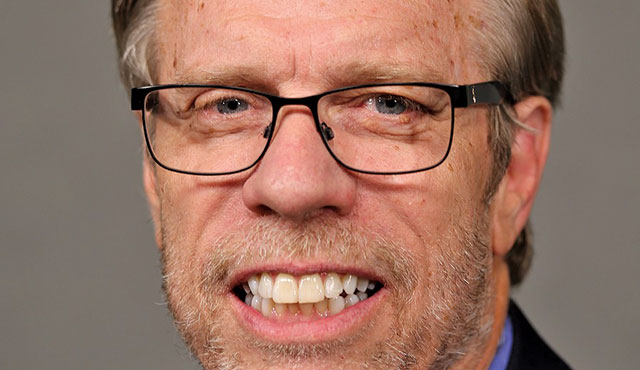I’ve found myself praying for my country a lot these days. As a family, we remember to do so when we say grace at dinner. At other times — usually after reading some terrible headline or seeing the latest total of fatalities from the coronavirus pandemic — I’ll say a silent prayer as well.
So I welcomed the recent announcement by Archbishop Jose H. Gomez of Los Angeles that there would be a national Rosary for America. Now is certainly the time to request heavenly intercession amid our pandemics not just of disease but of polarization, anger and fear.
The prayer took place on Oct. 7, the feast of Our Lady of the Rosary. While it was announced only a week before, Catholic newspapers, television, radio and social media threw their support behind the event.
Archbishop Gomez introduced it, but he did not dwell on our ailments and our conflicts. Instead, he recalled the first Catholic missionaries in the New World, and he reminded us that we are the missionaries today called to bring the good news to the people.
“We ask Mary to look upon our nation with her mother’s eyes,” he said. “We ask her to intercede for this great nation.”
“We pray that America might fulfill the beautiful vision of our missionaries and founders,” he continued. “As a land where all men and women are treated as children of God. With equality, liberty and justice for all.”
It was a simple appeal, and what followed was simple as well. Various bishops from around the country took turns praying the decades of the Rosary.
One decade was recited in Spanish. Without exaggeration or heavy-handedness, the great diversity of our church was represented in various backdrops and chapels. In the faces of the young children who recited the Glory Be, in the faces of the women who recited the Fatima prayer and in the faces of the bishops themselves.
It was a prayerful visualization of our nation and our church.
At the end, Archbishop Gomez asked Catholics to “light up the digital highways” by posting prayer intentions with the hashtag #RosaryforAmerica.
One of the unexpected blessings of the pandemic have been the events of public prayer. Most notable was the “urbi et orbi” blessing by Pope Francis on March 27. The powerful image of the pope alone in the darkening, rain-swept plaza of St. Peter’s was perhaps the most iconic Catholic image of this time of sickness and fear.
Public processions have taken place as well. In San Francisco on Oct. 3, Archbishop Salvatore J. Cordileone led an hour-and-a-half procession through the Mission District to commemorate the city’s patron saint and to offer thanksgiving for a relaxation of city restrictions on the celebration of indoor religious services.
Such public prayer in times of crisis has a long history in the church. More than 1,500 years ago, St. Gregory the Great led a procession through Rome praying for a cessation of the bubonic plague. According to legend, he had a vision of St. Michael the Archangel sheathing his sword on the top of what is now called Castel Sant’Angelo, and the plague was stopped.
Our pandemics are still with us. Not just COVID-19, but also the pandemics of distrust and division, of inequality and want. As Archbishop Gomez declared, now is a time of missionary witness.
If Catholics in every parish and every diocese can transcend their divisions and unite to care for the hungry, the homeless, the unemployed, the sick and the grieving, perhaps the healing that our nation most desperately needs will take place. The sword will be sheathed, and our prayers will be answered.

